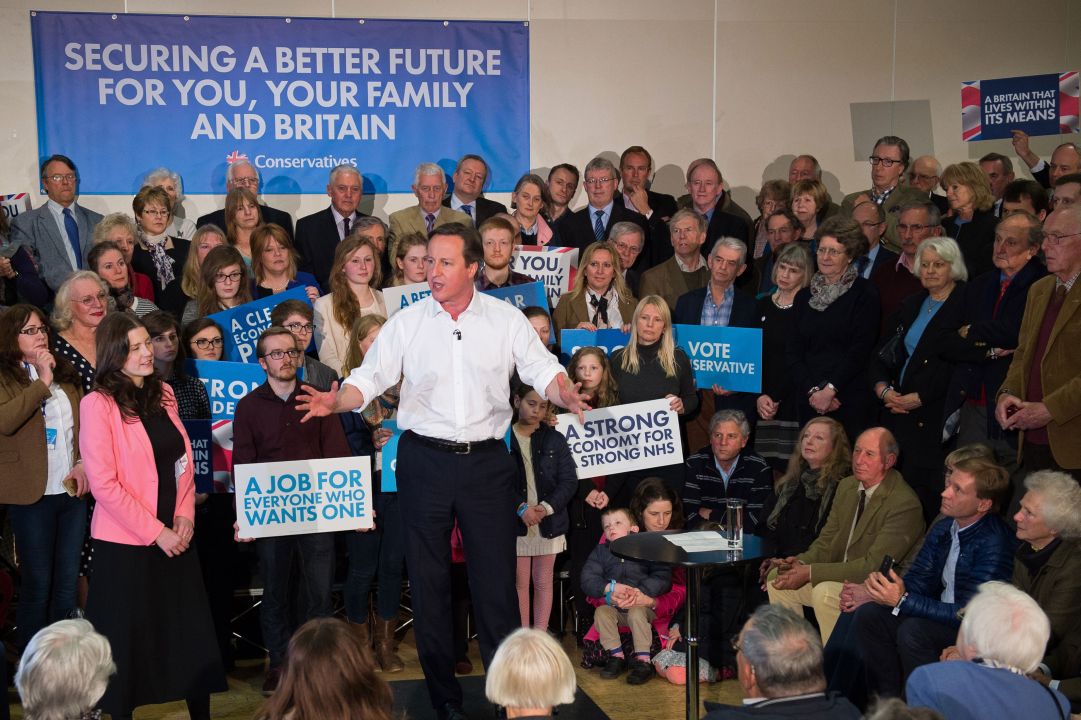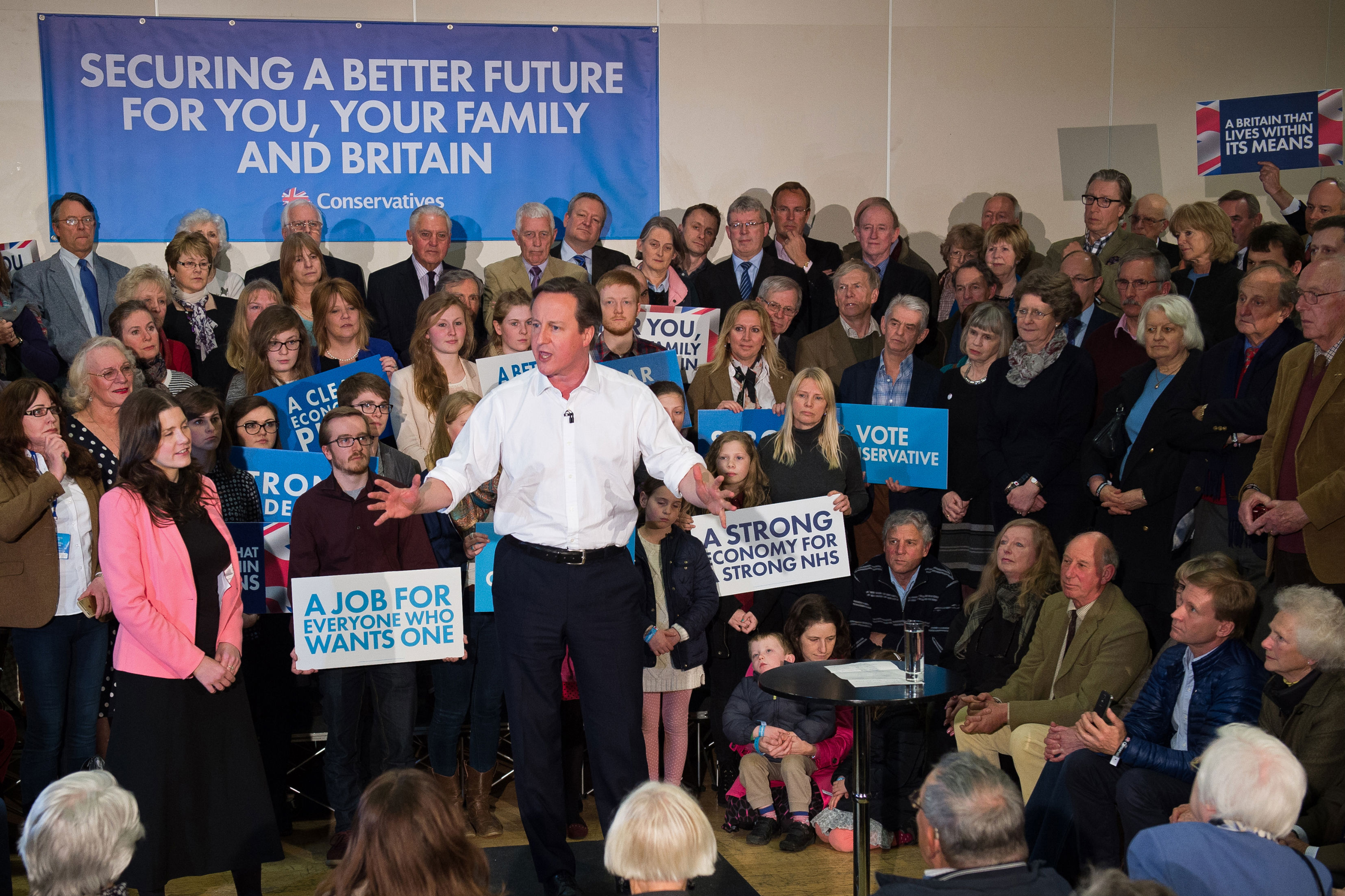Perhaps, the biggest question of this campaign is whether the Tories will gain support in the next five and a bit weeks. If they don’t, Cameron will almost certainly lose and Ed Miliband will become Prime Minister.
In his column today, Danny Finkelstein looks at polling data produced by Andrew Cooper of Populus to see what the chances are of a late surge. Cooper looked at those who prefer Cameron to Miliband as Prime Minister and also think that the Tories would manage the economy better than Labour but are currently not saying they’ll vote Tory.
In Cooper’s poll of 10,000 voters, conducted in five waves, this group made up 18% of those likely to vote. But a sizable chuck of this group said that they would never vote Tory and others said they were planning to vote on local issues or thought that other issues were more important than the economy.
However, 2 percent of all voters agreed with the statement ‘I don’t want to vote Conservative but in the end I may well end up doing so because Labour would be (even) worse on the economy and it’s unthinkable that Ed Miliband could end up as prime minister.’ Then, a further one percent said that while they thought the Tories were better on the economy ‘overall, I don’t think people like me are likely to benefit from a recovering economy under the Conservatives’. Now, I suspect that the Tories will find it easier to convert the two percent than the one percent.
But as Finkelstein says, the challenge for the Tory campaign is to flip those who think that Cameron would be better than Miliband and the Tories better with the economy into actual Tory voters. Finkelstein argues that this will require a more optimistic message, explaining how the recovery will benefit the average Joe.








Comments